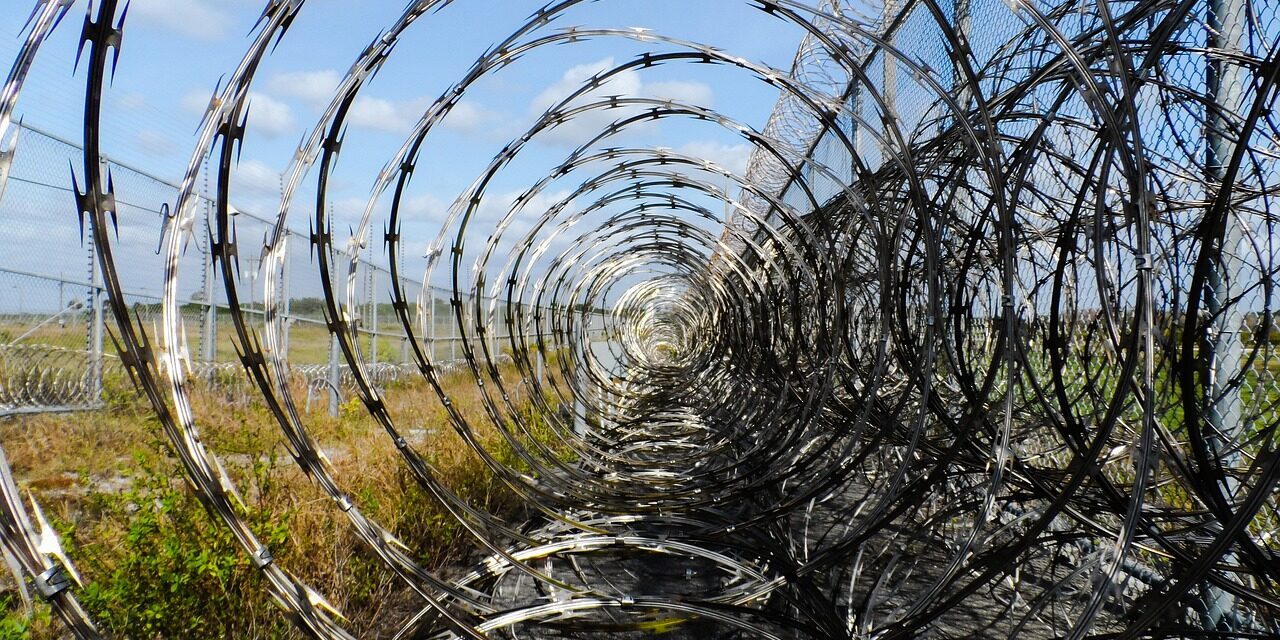To the question, "How do you evaluate the last 8 years from the point of view of immigration in Germany?", Judit Varga answered the following: "We can put it briefly that they would no longer say 'Willkommen!'
According to the latest, representative surveys, 59% of Germans think it is not possible to accept more asylum seekers. Meanwhile, 57% fear that the number of non-European refugees will rise again.
More than half of the respondents associate immigration with disadvantages, and only 23% believe that the refugees currently arriving in Germany will contribute to the easing of the labor market situation.
86% of Germans would support an immigration law, but unfortunately, only 10% believe that the ruling left-liberal coalition would introduce more serious regulations for the country's benefit.
On the other hand, the Hungarian government listened to the Hungarian people, who stated very directly that they wanted to decide who they should live with in their own country.
Since 2015, Hungary has been able to build a comprehensive and effective defense, setting an example for the whole of Europe. We put up a physical and legal border lock, we also fought with Brussels to protect immigration rules, and recently we set up a border patrol regiment to guarantee the safety of the Hungarian people" (Judit Varga, 28.03.2023, Facbook)
Some facts, supplemented by Judith Varga:
Systematic brainwashing has been going on in the western part of Germany since the USA-GB-Fr occupation: Germany is a bad and sinful nation (Nazi). True, at first only Turks and Italians were admitted in large numbers, to make up for the actual labor shortage. At the same time, in the eastern part of Germany, the guilt of the Soviet occupation, not the Germans, but rather the Nazis, was voiced, only the Communists were exempt from guilt. This has changed in the eastern part since 1990, hasn't it. There, too, they began to push the Western narrative of "all Germans are guilty" into the minds of the people. The German "soul" therefore sought to make amends for their "sins" outwardly in many areas and to distance itself from all "excessive" patriotism. This is how the "Wilkommens-Kultur" was also formed. (Source: bpb.de )
Since the people living in the "new provinces", i.e. the former Soviet occupation zone, were already disillusioned with the lies of a system, they did not believe the lies of the new system. They knew and passed on the fact that there was no peace treaty between the USA and Germany. The "Two Plus Four Treaty" of 1990 is essentially an agreement that the NATO (ie USA) sphere of influence will extend to all of Germany. The peace treaty of the defunct GDR with the Soviet Union, which was concluded in 1955, actually became invalid, but it was frivolous anyway, as Soviet troops were still in the eastern area. The more than 20 US military bases in Germany only confirm that Germany is not a sovereign state at the moment. (Source: mdr.de )
It was to be expected and I predicted in advance that as soon as a serious economic crisis hits in Germany, Germans and foreigners who used to live in Germany will turn against economic immigrants.
Because of the above, the German population has been against non-German immigrants for a long time, no matter where they come from, but because of the German Basic Law (Grundgesetz) (which is not a Constitution, even if they say it is), the legislation and the deliberate destruction of German pride and self-awareness because of this, healthy patriotic thoughts classify it as right-wing extremist.
Therefore, for decades, many people have preferred to remain silent rather than speak out against excessive immigration, lest they be branded as Nazis. (Source: cicero.de )
Of Germany's 82 million population, only 60 million are of German nationality, and another 12 million "German" citizens have a migration background, including those from African, Asian, American and other European countries, including Hungarians. Thus approx. 10 million non-German citizens live in Germany. There are also millions of undeclared people who do not appear in the statistics .
Before the extension of the Schengen area, i.e. border control, illegal economic immigration was kept under control and only actual political refugees could enter Germany. Before 1995, Germany was a completely safe country, although crime, arms, human and drug trafficking were noticeably increasing.
The situation already worsened when the Schengen area expanded to the south, i.e. towards Italy (1997) and Greece (2000). sufficiently, so neither the Baltic states, nor Poland, nor the eastern borders of Slovakia, nor the southern and eastern borders of Hungary. The construction of the technical border barrier in Hungary and later in Poland improved the situation from 2016.
Technical border locks only slow down illegal immigration. A human smuggling network has developed on both sides of the borders of all EU member states belonging to the Schengen area, which is supported by local, regional and national decision-makers, or who turn a blind eye to its existence. This is also the case in Hungary.
The so-called Kalergi plan envisages replacing the European population and mixing it with Asians and Africans in order to create a mixed race that has no national pride and is easier to control or exploit, or even exterminate if necessary. (Practical Idealism: The Kalergi Plan to Destroy the Peoples of Europe by Richard Nikolaus Coudenhove-Kalergi.)
Kalergi was a Freemason and belonged to the Vienna Humanitas Lodge. In all probability, the implementation of this plan, among many other plans, is still the goal of the leaders of the global Freemasons and is in an advanced state in many Western European countries .
One of the goals of the so-called Morgenthau plan was to make Germany an agricultural country. Although the USA allowed Germany to industrialize temporarily, as we can see in the current artificial energy crisis, German industry is being forced to relocate to the USA and other countries. (Morgenthau, Henry jr.: Program to prevent a World War III to be started by Germany, 1944)
In addition, the USA, Great Britain and France have been trying to prevent the creation of a strong Germany for about 150 years, so they also want to break the economic relations between Germany and Russia, since these states would become too strong for them.
After the facts, a short package of suggestions:
- The full restoration of border controls in the countries of the Schengen area, which can be implemented in a short time.
- Those who are proven not to be political refugees, but economic refugees, must be immediately returned to their own country, which can also be done within a short period of time.
- The actual abolition of the "semi-colonial" status of many countries in Africa and Asia and the actual economic development of many countries, the restoration of public safety. This cannot be realized in the short term, because these countries must win their actual independence ourselves. The Gandhian way of India would be a peaceful way for them.
- The USA could only have military bases in Great Britain, it would withdraw completely from the EU and allow the establishment of a European Joint Force. Makes actual peace with Germany. In this way, we have the desired buffer zone between Russia and the USA. In the medium term, this is feasible. We know that the power interests of the USA want Russia to be dismembered and to get their hands on its mineral resources and other raw materials, which is why it is pushing NATO's borders further and further east, so that "only the good God can put an end" to this expansion and he will one day.
- The complete banning and publicizing of the activities of the Freemasonry-Illuminati and other secret societies. This is also in the hands of the good God, because the mentioned secret organizations are proven to be imbued with Satanist elements. So we have to wait, since they are in power in many countries, such as in the USA, Germany, but also in Hungary, and they will not ban themselves.
Essay by MA de Konkol-Both (Konkoly René).
(Germany expert)
Reader letters only partially reflect the opinion of the editors













